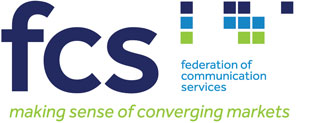Industry Standards
If you’re a buyer and you want to compare like with like, you need a common reference point. If you’re a regulator or adjudicator, trying to take a dispassionate view on a piece of work, you need a common reference point. And if you are an engineering professional, seeking to ensure your installation is both fit for purpose today and safe for a fellow professional to work on tomorrow, you need a common reference point.
In an industry which depends upon passing tiny electrical impulses or flashes of light over vast distances without distortion, it is vital the equipment all meets common technical standards. Without agreed standards to provide the foundation, we would not have an industry.
FCS is an organisation of resellers and solutions providers, not technical experts, academics and engineers. So we support and publicise the work of technical specialist organisations like NICC, who have authored most of the industry’s technical inter-operability standards. FCS also hosts and maintains many of the old Ministry of Posts and Telecommunications radio industry codes of practice, which were passed to the industry when the Radiocommunications Agency merged with Oftel to create Ofcom. A list of standards and best practice documents can be found on our Best Practice page.
FCS’ important Communications Environmental and Recycling Consortium is a ‘special purposes’ committee undertaking projects in the environmental and recycling arena to address particular concerns or objectives. The Consortium works on projects identified by its members.
Previous workstreams included engaging alongside the Telecoms UK Fraud Forum (TUFF), on modifications to the mobile phone recyclers’ code of practice.
- The output of that work was FCS 2000:2016 Guidance on Procedures for the Recycling of Mobile Phones for the Avoidance of Fraud
hFCS’ main interest in standards is where they affect the buyer/seller relationship. If suppliers are tempted to cut corners on installation in order to win a bid on price, standards protect the buyer from the results of a poorly-informed purchasing decision. So FCS maintains two industry standards to protect customers in crucial areas of radio equipment installation:
- FCS1362 is the crucial best practice guide for the installation of radio frequency equipment into vehicles, and the reference for both the National Association of Police Fleet Managers and the Government Procurement service. The latest revision of the Document is for 2022.
- FCS1331 is the code for radio mast site engineering best practice. Launched in 2013, after a complete industry-authored re-write of MPT1331, this standard immediately proved its worth when it was adopted as the default for all radio equipment installation in the 2014 Glasgow Commonwealth Games. This has been updated to a 2022 version; click here to view it: FCS1331: 2022
Both FCS1362 and FCS1331 carry separate accreditation schemes, to give customers the confidence not only that work is specified to the strandards, but that the individuals carrying out the installation are actually competent to do so.
